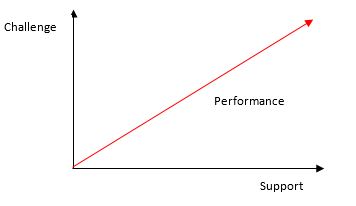On May 14, 1796, Edward Jenner took a small amount of fluid from a milkmaid’s hand lesion and scratched it into the skin of his neighbour’s son. The eight year old boy, James Phipps, developed a nasty blister the size of a 10 cent coin on his arm, but soon recovered. Later, James warded off the smallpox challenge and the world’s first vaccination was born.
A vaccine works by intentionally exposing its recipient to an antigen, which stimulates the body’s immune responses and protects against future encounters with the disease. Arguably, the practice has resulted in greater benefits to human health than any other cultural, social, or scientific advance in history.
In the same way that exposing someone to a small dose of an infectious disease renders future protection against it, subjecting an athlete to stress improves their ability to perform at their best under pressure.
It’s called stress inoculation training, and it’s how we build resilience.
One of the ways to do it is by gradually increasing the difficulty of a performance challenge an athlete faces. Importantly, the closer practice environment conditions are to the real thing, the more effective the inoculation will be.
For instance, if you want to increase the odds of making a shot late in the fourth quarter of an important basketball game, you need to practice a variety of real-life scenarios, under fatigue, and when there’s something meaningful on the line.
However, while increasing the level of challenge is important, it must be matched with appropriate and adequate support. This may include helping an athlete to learn and practice important personal qualities, such as goal-setting, self-talk or the adoption of a task-perspective. Without it, an athlete is much more likely to crack under the pressure and experience negative outcomes.

Inoculating an athlete to stress by being purposeful with your training activities will significantly increase the changes of effective functioning and performance during times of high pressure.
References:
Fletcher, D. and Sarkar, M. (2016). Mental fortitude training: An evidence-based approach to developing psychological resilience for sustained success, Journal of Sport Psychology in Action, 7:3,135-157.





































